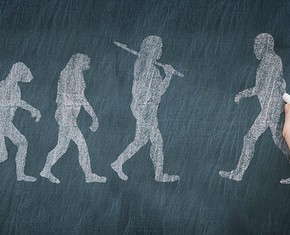The views expressed in our content reflect individual perspectives and do not represent the authoritative views of the Baha'i Faith.
If you go to church, or temple, or mosque, you might soon hear about a unique interfaith initiative that will take place around Earth Day this year—Faith Climate Action Week.
Sponsored by Interfaith Power and Light, the U.S.-based group that focuses the work of people of faith on the serious subject of climate change, Faith Climate Action Week will do just what its name suggests—ask those who have faith in God to take action on the world’s critical climate-related issues.
Why? Well, for one reason, 2015 was the warmest year on record. If scientists’ predictions are correct—and they have been so far—2016 will be even warmer. And so on.
Think about that for a moment—the warmest year on record. Ever. In human history. The overwhelming majority of scientists agree: we have burned so much fossil fuel since the dawn of the industrial revolution two centuries ago, that we have managed to turn Earth’s thermostat up dramatically. Eventually, if we keep going, that thermostat will continue to heat our atmosphere, causing catastrophic destruction to all we hold sacred.
People who believe in God must come together in unity to address this global issue. After all, like the Baha’i teachings say, we all breathe the same atmosphere and move beneath the same heavens:
The unity which is productive of unlimited results is first a unity of mankind which recognizes that all are sheltered beneath the overshadowing glory of the All-Glorious; that all are servants of one God; for all breathe the same atmosphere, live upon the same earth, move beneath the same heavens, receive effulgence from the same sun and are under the protection of one God. This is the most great unity, and its results are lasting if humanity adheres to it; but mankind has hitherto violated it, adhering to sectarian or other limited unities such as racial, patriotic or unity of self-interests; therefore no great results have been forthcoming. Nevertheless it is certain that the radiance and favors of God are encompassing, minds have developed, perceptions have become acute, sciences and arts are widespread and capacity exists for the proclamation and promulgation of the real and ultimate unity of mankind which will bring forth marvelous results. It will reconcile all religions, make warring nations loving, cause hostile kings to become friendly and bring peace and happiness to the human world. It will cement together the Orient and Occident, remove forever the foundations of war and upraise the ensign of the Most Great Peace. These limited unities are therefore signs of that great unity which will make all the human family one by being productive of the attractions of conscience in mankind. – Abdu’l-Baha, The Promulgation of Universal Peace, p. 191.
 On April 22, Earth Day, leaders from around the world will meet in New York City to formally sign the Paris Climate Accord, a landmark pledge to combat the devastation global warming causes and will continue to cause, unless we unify.
On April 22, Earth Day, leaders from around the world will meet in New York City to formally sign the Paris Climate Accord, a landmark pledge to combat the devastation global warming causes and will continue to cause, unless we unify.
This historic move calls for a celebration! But it also calls for action rather than complacency. The entire human race needs to take action, to make sure we live up to our sacred commitment to defend Creation.
Around the United States and the world during this Earth Day season, more than 1,200 congregations will take part in Faith Climate Action Week, mobilizing their faith communities with a week of preaching, teaching, praying and lifting up a moral and spiritual message to combat climate change.
“We’ve reached a turning point in the fight to protect Creation from the destructive impacts of climate change,” the Interfaith Power and Light organization said in a statement. “By signing the Paris Accord, our leaders are pledging to take climate action. Now we need to do our part to honor that pledge by mobilizing more people of faith into action than ever before through programs like Faith Climate Action Week.”
A recent study by the Yale Program on Climate Change Communication found that the people who see climate change as a moral, religious or spiritual issue are the most likely group to want to do something about it. If you’d like to join the Baha’is and the many other faith groups who care about the Earth and want to preserve it for future generations, do something meaningful to combat climate change this Earth Day. You can start by visiting the Interfaith Power and Light website.
You May Also Like
Comments

















Abdullah's quote works just as well without any mention of God.
No need to attach a god, old or new, or other (faith-based) unscientific understandings, when promoting (reason-based) conciuousness for climate change. In doing so, your message includes an unrelated agenda, independent of climate change, and is therefore political, and misleading.